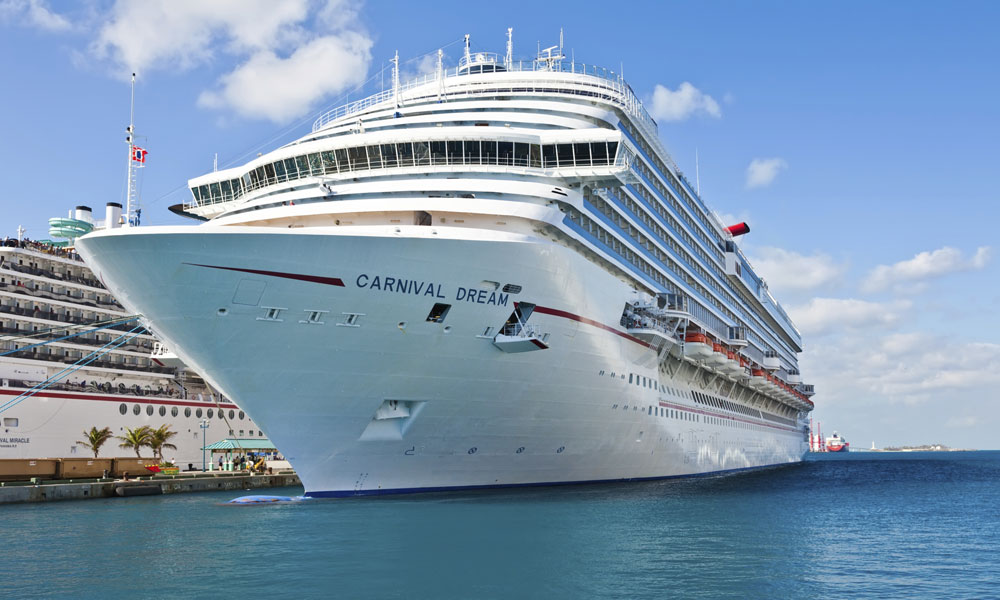
Report: Cruise Industry Makes Progress After Mishaps
After a period when negative press dogged cruise lines, a new Government Accountability Office report says they're making progress on safety. While more needs to be done, a key industry association says it proves how far things haves come.
After a period when negative press dogged cruise lines, a new Government Accountability Office report says they’re making progress on safety. While more needs to be done, a key industry association says it proves how far things haves come.
The cruise industry hasn’t exactly had an easy go of it in recent years on the perception front, but as a new report shows, the industry is making headway on a number of key safety issues.
The report, released by the U.S. Government Accountability Office on Monday, shows that the industry has made progress on complying with elements of the Cruise Vessel Security and Safety Act, a 2010 law intended to improve transparency and safety for travelers. However, due to some issues with the law’s implementation, there is still more to be done. More details:
To our knowledge, no other industry provides this level of transparency.
What’s been implemented: Of the 15 safety measures listed in the law, at least 11 have been adopted to varying degrees—including an increase in railing heights, the addition of security cameras, improved overboard detection, and stronger communication mechanisms. The Cruise Lines International Association (CLIA), which represents every major U.S. cruise line company, has strongly encouraged the measures’ implementation. “The report recognizes that the industry adopted 10 wide-ranging safety policies in 2012, each of which are mandatory for membership in CLIA, and have been incorporated into International Maritime Organization (IMO) standards,” CLIA President and CEO Christine Duffy said in a statement.
Crime reporting an issue: One of the most important aspects of the 2010 law—which requires the public reporting of major crimes on vessels—continues to cause issues for the industry, The Washington Post notes. Part of the issue comes from a lack of clarity and context: For example, while the data goes online, it often lacks context that would make it useful to the public. On top of this, assaults reported on cruise ships often go underreported if an investigation is not undertaken. Legislators are working on the issue, as is the cruise industry; six cruise lines have begun voluntary reporting efforts in cases of crime. The association, for its part, emphasizes that the level of disclosure is far higher than that of similar industries. “Although allegations of serious crime on cruise ships are a small fraction of corresponding rates on land,” Duffy said in her statement, “the cruise industry voluntarily discloses allegations of serious crime to the public so consumers can see for themselves that alleged crimes on cruise ships are uncommon. To our knowledge, no other industry provides this level of transparency.”
Where legislators stand: The GAO findings drew mixed reviews from legislators. Sen. Jay Rockefeller (D-WV) suggested that the cruise industry still had far from a passing grade on safety issues. “I’ll give the cruise ships some credit, because of the first bill we passed they raised the level of their railings,” he told NBC News. “They’ve done a pretty good job on that, but when it comes to crime, no they have not.” Rep. Bennie Thompson (D-MS), meanwhile, emphasized the need to press for industry compliance. “It is crucial that we push harder to enact final safety regulations mandated by law,” he told USA Today.
Beyond issues of crime and safety, CLIA has dealt with a handful of embarrassing incidents in the past year—most notably last February’s engine fire that left the Carnival Triumph drifting and disabled for days and a fire aboard Royal Caribbean’s Grandeur of the Seas in May that cut short its voyage. Such incidents and the resulting outcry from lawmakers led the association to draft a “Cruise Industry Passenger Bill of Rights.”
(iStock Editorial/Thinkstock)






Comments